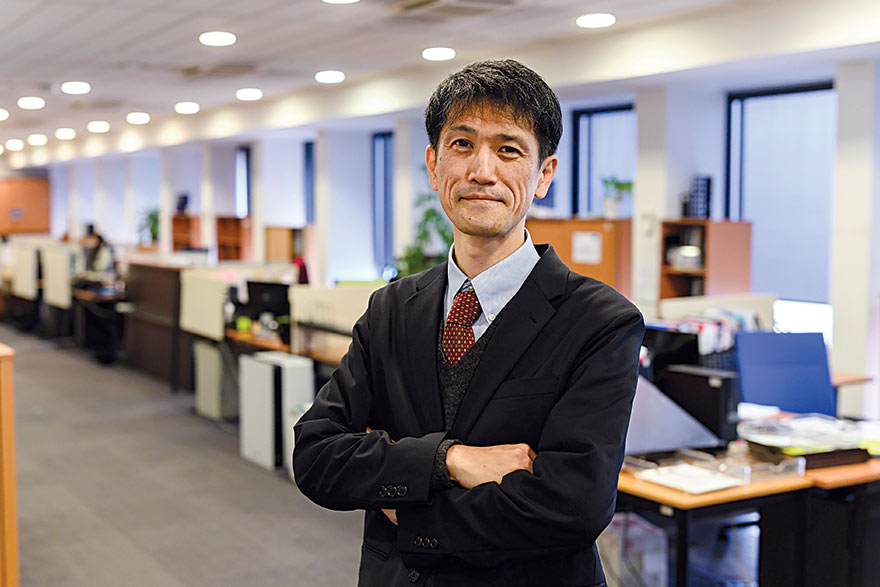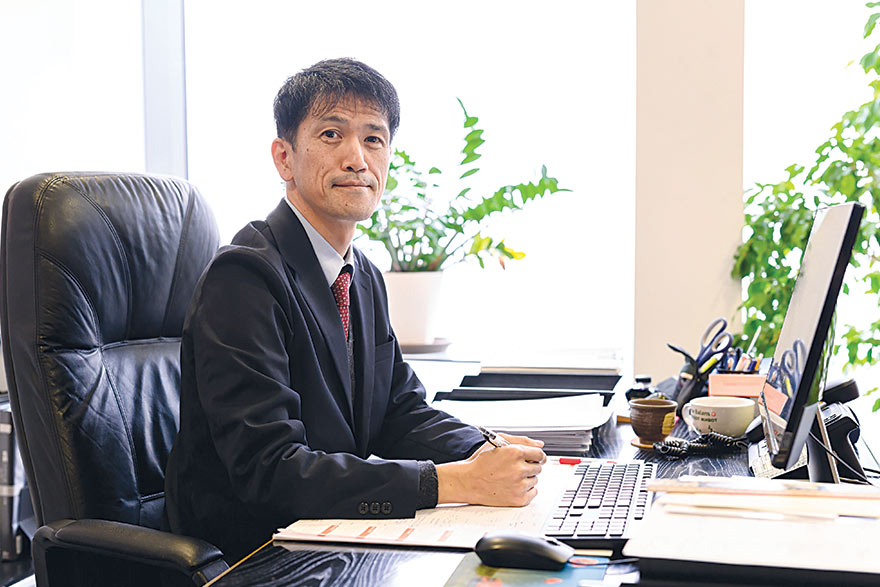On the basis of the “Western Balkan Initiative” that was proposed by Japanese Prime Minister Shinzo Abe in 2018, JICA has been engaged in providing technical and financial assistance to Serbia and other Balkan countries in their efforts to carry out reforms towards EU accession. Investment promotion, private sector development and environmental protection are all in the focus of JICA’s engagements
Although Japanese companies don’t have a very heavy presence in the region, Japanese-style support for small and medium-sized enterprises is spreading to the Western Balkan countries. Here Jiro Takeichi, Chief Representative at the JICA Balkan Office, answers our questions related to JICA’s involvement in the region.
How many companies can today pride themselves on being followers of your business style?
– Around 200 mentors have been trained through the Project for the Establishment and Promotion of Mentoring Services in SMEs in the Western Balkans, which was first implemented in Serbia and then extended to other Balkan countries as well. After having acquired skills and techniques related to Japanese “Kaizen”, 5S and business consultancy, these mentors offer mentoring services based on the needs of SMEs. And the number of companies that have benefited from this project has risen to more than 2,600 to date. In order to provide high quality mentoring services to all companies, this project aimed to establish standardised mentoring techniques and improve the skills of trained mentors.
As a result of this, mentors are able to analyse a specific company from a bird’s eye view and improve the ability to understand the actual needs of that company. In order to provide a few different solutions, mentors also need to adjust methods of financial assistance to a specific company, to know how to develop promotions, new markets, new products, and to improve productivity. Since these proposals provide different points of view for the entrepreneurs/beneficiaries, the companies involved are able to formulate even better business strategies.
How much are similar such initiatives helping to bringing Japanese companies and businesses from the Western Balkan closer together?
– After receiving mentoring services, the beneficiaries reported a positive impact on their businesses, such as new business opportunities and access to new markets. I will provide two examples of beneficiaries who got new business partners who were not domestic or regional ones, but rather from the EU.
Milan Blagojević from Smederevo (MBS) has established cooperation with business partner Oranier from Germany and is producing wood cookers, stoves and electric range ovens under the Oranier brand. Cooperation with Oranier is a direct result of the implementation of 5S in the part of their production during the mentoring process.

Another example is HOFF d.o.o. from Belgrade, which has established cooperation with business partner Kasht from Slovenia. The aim of this cooperation is to place HOFF’s products (aronia juice, toppings and aronia filling) on the Slovenian market and to access other EU markets. During the mentoring process, RAREI (Regional Agency for Development and European Integration) Belgrade and HOFF worked on creating an export strategy, and cooperation with Kasht is a direct result of that mentoring activity.
Japanese business didn’t have enough information about Serbia for a long time, or the region wasn’t in their focus. Today, however, it seems that things are at least slightly different. How would you describe the interest of Japanese companies in this part of the world?
– From Japan’s perspective, Serbia is a distant country where Japanese companies haven’t previously been present. However, Japanese companies perceive Serbia as a country with high quality human resources that’s well positioned geographically, with access to huge markets like those of the EU and Russia. Therefore, JICA has been implementing projects, through Official Development Assistance (ODA), that will draw attention to the business potentials of Serbia. Specifically, in the case that there is a request from a Japanese company to collect some basic information in a specific field or to explore business models in order to market their products or services, JICA can provide grant assistance. There is also a possibility to financially support private enterprises that are implementing promising development projects.
This year, a company that is developing an agricultural school in Japan is planning to use JICA’s grant system to carry out a basic study in the field of agriculture in Serbia. If the study goes well, this company’s next step would be to manage a business school in Serbia, which would nurture a new generation of managers in agriculture. In this way, JICA continues to support Japanese companies that express an interest in doing business in Serbia and this region.
The recent advancements of Serbian companies Milan Blagojević from Smederevo (MBS) and HOFF d.o.o. were based on the provision of mentoring services provided through JICA support
Assistance to Balkan countries began in 1990, when JICA accepted the first training participants from Albania to Japan, and in 2016 the JICA Balkan Office marked the 10th anniversary of its opening in Belgrade. How has your assistance to Serbia changed over time?
– When Japan first began with ODA in the Balkan region, the focus was on assistance to market-orientated economic reforms. After this, while adjusting to economic development in Serbia, the main sector of cooperation in the Balkan region shifted to investment promotion, private sector development and the promotion of SMEs. Moreover, since the beginning of cooperation, environmental protection has been another main sector for assistance and we plan to start a new project in that field this year. Japan has lasting experience and accumulated knowledge in these two fields, and we hope for very successful cooperation here.
In 2018, Prime Minister of Japan Shinzo Abe visited Serbia and proposed the “Western Balkan Initiative”, making it clear that Japan will continue its cooperation with Western Balkan countries. Based on this initiative by the Government of Japan, JICA will continue providing technical and financial assistance to Serbia and other Balkan countries in their efforts to carry out reforms towards EU accession.
The Project to Research the Integration System of Spatial Environment Analyses and Advanced Metal Recovery to Ensure Sustainable Resource Development, which is supported by JICA, is culminating in 2020. What would you outline as its major achievements?
– As a result of mining at the Bor mine for many years, downstream flows have been polluted and the tailings have remained in this area. However, since the contaminated area is huge, it was very difficult to identify the burden it places on the environment and to propose measures for environmental reclamation. As a result of a five-year project, Serbian researchers – together with Japanese researchers from Akita University – managed to identify the source of pollution and specify the polluted area within the mining complex.

It also became easier to devise measures to neutralise contaminated waste water depending on the source of pollution, as well as to check whether successful environmental reclamation is possible by installing a waste water channel. The results of this research has been summarised and already submitted to the Ministry of Mining and Energy. Generally speaking, environmental reclamation demands serious funds and we hope that governmental institutions and research centres, together with the mining company, will work together and implement anti-contamination measures.
Considering that environmental issues are becoming pronounced all over the world, how would you estimate the progress made so far in this sector in Serbia, through your support?
– The project in Bor is soon to be completed, but another similar project in the City of Pančevo is starting. In the City of Pančevo is an old waste disposal site of the closed Petrohemija company, which is a threat to the environment. We are continuing activities that involve industry, government and academia, working together with citizens, to establish a monitoring system and raise the awareness of environmental protection. Furthermore, in the Municipality of Šid we are continuing to support eco-friendly urban development by developing a recycling system and establishing 3R (Reduce, Reuse, Recycle) activities. Last but not least, the construction of facilities for flue-gas desulphurisation at the biggest power station, Thermal Power Plant Nikola Tesla A, has already begun and will relieve the burden on the environment caused from pollution emitted by the thermal power plant.
Eight Japanese volunteers are currently dispatched to Serbia and are engaged in various activities. If you happen to meet them somewhere, please talk to them and try to connect
Serbia has carried out many reforms in the field of environmental protection in order to advance its EU accession process, but since many tasks are yet to be completed, JICA will continue to focus on this field, as one of the main pillars of cooperation, and will keep formulating and implementing projects related to environmental protection.
Which other JICA activities in Serbia would you like to outline?
– At the JICA Balkan Office, besides private sector development and environmental protection, efforts are also being exerted to support persons with disabilities. There are numerous NGOs in Serbia focusing on this group, and JICA is cooperating specifically with the Belgrade Sports Association for Persons with Disabilities, Nasa Kuca and Decije Srce [Our House and Child’s Heart]. JICA supports people living with disabilities through activities related to sports and production, in order to assist them in their social engagements.
Another thing is that we last year started implementing the programme of young volunteers (JOCV) in Serbia. Through the JICA volunteer programme, young and senior volunteers are dispatched to municipalities and NGOs across Serbia, and are given the opportunity to work together with Serbian citizens for two years. During this time, Serbian citizens are familiarised with the Japanese way of thinking and working, and thus gain a deeper understanding of Japan. On the other hand, during their assignment and upon their return to Japan, the volunteers continue sharing their experience from Serbia in Japan, again better familiarising the Japanese people with Serbia. Through this kind of mutual understanding, the friendship between our countries is deepening, and that is the ultimate goal of this programme. Volunteers are dispatched not only to Belgrade, but also to other cities in Serbia.